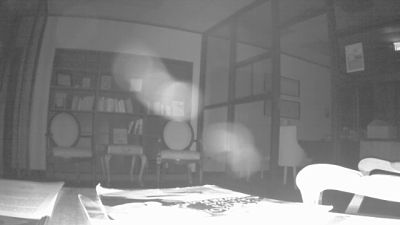
Preface for Those Not Reading Part I
Cultures generally muddle through their problems. If righteousness exalts a nation, injustice will debase the culture. Fortunately, advanced cultures generally balance out: decay in one area, improvement in another.
Sometimes a culture blows it and ends up in a reboot situation. This is particularly true when in a period of rapid change combined with the passing of the founding generation. The American Civil War was one such era, the World War II generation is another. Both changes did not bring utopia, but did allow the Republic to muddle along with some problems solved. As the World War II generation passes from the scene, we are in such a time.
The systems created by that Greatest Generation need reexamination and improvement in light of changes. Doing this moderately and carefully without creating more problems than are solved is the trick. The Constantine strategy is the advice to go do something: build a counter-culture, ask only to be left alone, and inevitably His Kingdom will come. Our community is starting with an experiment in k-12 and undergraduate college education with the help of our church home and The King’s College.
Yet there is a danger that while low in probability is too dangerous to ignore. Sometimes a nation does enough wrong things that total cultural collapse happens as it did in 1917 in Tsarist Russia.
The results of such a massive reboot are rarely pretty.
One way to avoid such a dark age is to realize things can be worse and to avoid despair. We can build alternative counter-cultures. Another way is to embrace extreme skepticism or goofy credulity.
This is not a Ghost
 Last night I was alerted that the outer office camera detected motion and I went to look at what could be in the building at midnight. The dancing light caught on camera was better than some “ghost” images I have seen on the Internet. Since the supernatural is real, why haven’t I called the news?
Last night I was alerted that the outer office camera detected motion and I went to look at what could be in the building at midnight. The dancing light caught on camera was better than some “ghost” images I have seen on the Internet. Since the supernatural is real, why haven’t I called the news?
While I am open to the existence of ghosts, this example seems better explained by a spider web catching the light, a leak in the casing of the camera, or some other natural event. Why? The object betrays no structure, evidences no purposeful movement, and looks just like other images I have seen debunked. Still if one were a grifter, perhaps something could be made of the film of an image dancing on the screen. Is it, after all, the ghost of Dale Carnegie come to see what we are doing in his building? IMG_0027
Good people fallen into extreme credulity get excited, because of desperation to “prove” the supernatural exists. A culture in trouble breeds many of these folk, because the dangerous belief that nothing could be worse sends some people into despair. They rightly want something bigger than themselves, but begin to look in all the wrong places. They want to believe, but reject faith because faith demands evidence and uses reason and best experience. They cry: “Just believe” and so fall for any number of goofy things. This is particularly dangerous when combined with the cultural resources of a great faith tradition such as Christianity. A person who will fall for this will stand for nothing in the end, because he is dazzled by spectacle. God help a culture where the soft-hearted become soft-headed.*
So in Russia before the Revolution, good men and women looked into spiritualism and were fooled by cranks and frauds. Even the Imperial Family was not immune as they looked for a cure for the hemophilia that was killing the young heir. We look for saints and end up in the hands of Rasputin if our hopes conquer the evidence.
Of course, some of us that see this goofiness react by becoming hard-headed and hard-hearted. We will not fall for the grifter and so we will be open to almost nothing. If we cannot touch it, then it is not real . . . forgetting that nobody can touch a number. If the evidence is not certain, or nearly so, we will not give our consent. Yet this is no way to live life, because many things worthy of belief are only probable and great things are often done by men and women who bet on the merely possible. To gamble on an intellectual long shot is not unreasonable, but the super-skeptic is unable to do so. He is no longer skeptical enough, because his fear of being duped is never examined.
As he looks for the lie, he fails to embrace the truth until life and opportunity pass by.
And so in a culture in decay, the rational, become crabbed and nasty. They delight in debunking and spend the vast majority of their intellectual energy opposing error. Yet while the super-skeptic, the intellectual Scrooge, root out the obvious frauds, the dubious are not helped, because the dubious are immune to reason. Meanwhile they accomplish nothing, because being against is not enough for a man.
Before the Revolution, it is was popular for intellectuals to sneer at the Church. They looked for the tricks, the fake weeping icon, and became a generation later capable of defacing all icons, including the image of God in the innocent. In exile, intellectuals like Lenin debunked every traditional idea they could find only to fall into the grip of Utopianism, more deadly than any fraud by a false monk. Others become nihilists: burn it down and something better will come.
Super-skepticism led to murder, cultural destruction, and an ugliness that has yet to end.
The good community must avoid credulity, falling for every religious or secular conman with a pitch of instant revival, and super-skepticism. Instead, we muddle along thinking, feeling, and doing our best. We are skeptical, because faith must be skeptical since it is not certain. We act and create, because faith is not faith if not putting substance on our hopes.
We begin with hope: we are optimists. Yet we reject utopianism, we know the world is too broken for perfect solutions and distrust every guru with all the answers. Instead, we allow our hope to be shaped by Church, reason, and experience. These hopes so tested become the knowledge called “faith” and on faith we act.
We save our intellectual capital, but do not horde it. We spend it on service to our community and a commitment to Jesus Christ.
————————————-
This series is based on lectures prepared for The Saint Constantine School college program. It is part of the Constantine Strategy to serve our time with wisdom, virtue, and joy for Christ and His Church. I gave a shorter version of this talk to the Thrive Apologetics Conference. Part I, Part II.
*Read Abolition of Man by CS Lewis for a better version of this warning.











